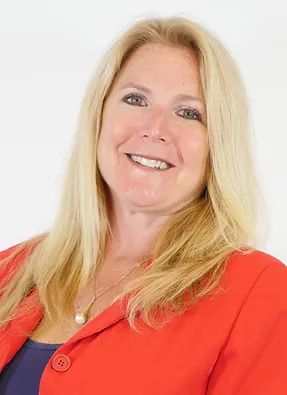 Join your fellow colleagues to gain actionable takeaways from Dr. Laurie Hazard, professor, author and acclaimed student success advocate, about how to best support our students to thrive. Dr. Hazard will present two different workshops for our two primary audiences in higher education: faculty/staff leaders and student leaders. This series is generously supported by the College of Education, Department of Student Transitions, Student Success Services, Center for Excellence in Teaching and Academic Leadership, Bear Life, and UCA’s Living Learning Communities. Learn more below and register today!
Join your fellow colleagues to gain actionable takeaways from Dr. Laurie Hazard, professor, author and acclaimed student success advocate, about how to best support our students to thrive. Dr. Hazard will present two different workshops for our two primary audiences in higher education: faculty/staff leaders and student leaders. This series is generously supported by the College of Education, Department of Student Transitions, Student Success Services, Center for Excellence in Teaching and Academic Leadership, Bear Life, and UCA’s Living Learning Communities. Learn more below and register today!
Supporting Students to Cultivate the Habits of Mind and Executive Functioning Skills to Foster Success in College and Life
Audience: UCA Faculty & Support Staff
Date: January 7, 2025 from 1:00-3:30 p.m.
Location: McCastlain Ballroom
A recent advisory from the Surgeon General has urged policy makers to focus attention on the youth mental health crisis. While the pandemic exacerbated this crisis, adolescent mental health issues were of concern prior to 2020. Today, many students face increased challenges such as gaps in content area knowledge, loss of academic stamina, increases in depression, stress, anxiety, and learned helplessness. When students experience associated mental health symptoms such as restlessness, the inability to focus, feelings of low self-worth, and lack of motivation, it interferes with their executive functioning and self-regulation.
Indeed, studies from recent years suggest that the mental health crisis coupled with the switch to online learning and back again damaged students’ focus, motivation, and emotional regulation. In general, students of all ages have performed worse academically post-pandemic. The solution is to create an environment to help students cultivate the habits of mind that foster college success and to support them to develop the executive functioning skills and self-regulatory behaviors that they must possess to mediate post-pandemic outcomes.
Using a “from theory to practice” framework, this workshop will help faculty and staff understand the contemporary challenges today’s students face and will offer concrete strategies to help students master these cognitive skills and behavioral skill sets to thrive in college and beyond.
Learning Outcomes for Part I:
- Explore the Habits of Mind (HoM) Frameworks
- Understand theories of learning, personality, and motivation that inform student success
- Identify the key adjustment issues and the habits of mind for academic success and assist students in assessing themselves
- Analyze ways to help students identify roadblocks to growth and development
- Learn pedagogical strategies that cultivate these habits
Learning Outcomes for Part II:
- Define executive functioning skills and self-regulatory behaviors and examine basic research findings
- Critique and understand flaws in current time management pedagogy
- Identify psychodynamics of procrastination from different theoretical frameworks
- Explore behavior change models
- Discover strategies to help students master self-regulation of learning
Register Today!
Coaching Struggling Students
Audience: UCA Tutors, Peer Coaches, Peer Mentors, RSO Leaders, SI Leaders, etc.
Date: January 8, 2025 from 9:30-12:00 p.m.
Location: McCastlain Ballroom
Researchers argue that self-regulation is at the heart college success. Unfortunately, many undergraduates enter college without having mastered the executive functioning skills and self-regulatory behaviors that foster success. The inability to master these behavioral and cognitive skill sets contributes to negative outcomes ranging from mental health issues, compromised immune systems to damaged relationships to impeded academic performance. Many times, when students experience these challenges, they are reticent about disclosing their struggles to faculty and staff, but they are willing to share their challenges with peers. Peer leaders are in a key position to help.
While many capable students seek out peer mentors on our campuses to support their college transition and enhance academic success, others inevitably seek help for academic and social challenges. There are times when at-risk or struggling students seek out assistance from peers, and peer mentors feel unprepared to address the wide-range of issues students face. For peer mentors to effectively assist struggling students, there are actionable strategies that will yield positive results. Using basic strategies that draw from the fields of advising, coaching, and counseling assists peer mentors to gain insight and offers critical information about what prevents students from thriving. This session will help peer mentors feel more comfortable and confident utilizing strategies that help students identify challenges. The result will be peer mentors’ increased awareness about the internal and external barriers to student learning and offer them concrete solutions to help.
Learning Outcomes for Part I:
- Define executive functioning skills and self-regulatory behaviors and examine basic research findings
- Understand strategies to work with students on time and behavior management
- Identify psychodynamics of procrastination
- Learn theories of motivation and goal setting
- Discover strategies to help students master self-regulation of learning
Learning Outcomes for Part II:
- Understanding basic coaching, counseling, and advising strategies provide peer mentors with knowledge and confidence to work with the most at-risk students
- Reflect on common strategies and practices for working with at-risk students
- Outline major heretical models that enhance behavior change
- Apply and role-play behavior change models for working with at-risk students
- Learn strategies to immediately put to use in their sessions with at-risk students
- Discover ways to hold students accountable through the behavior change process
Register Today!
More about Dr. Laurie Hazard
Laurie L. Hazard, Ed.D. is a higher education consultant with over thirty years of operational and strategic experience in the field of student success in higher education. Her experience ranges from assessment work to developing innovative services and programs for institutions tailored to their specific populations. As the former Assistant Dean for Student Success at Bryant University, she was responsible for ensuring that students had a positive, thriving experience from matriculation to graduation. Currently, Laurie teaches psychology at the New England Institute of Technology for the Department of Humanities and Social Sciences.
Laurie researches and writes about parent involvement, student personality types, and classroom success. She is an award-winning expert on how students can make successful transitions from high school to college. She has won numerous awards for her work with first-year students and their parents, including the National Resource Center for The First-Year Experience and Students in Transition’s Outstanding First-Year Student Advocate; the Learning Assistance Association of New England’s Outstanding Research and Publication Award; the Learning Assistance Association of New England’s Outstanding Service to Developmental Students Award and CRLA Northeast’s Outstanding Service to the Field of Developmental Education Award. Most recently, Laurie and her colleague received the AHEPPP, Parent and Family Professional Best Institutional Initiative Award and Blackboard Catalyst Award for Student Success.
Laurie’s expertise has garnered national media attention. She has been interviewed and cited as an expert in the Associated Press, Seventeen Magazine, The Chicago Tribune, The Times Picayune, The San Diego Tribune, and Student Affairs Leader. Laurie has also been a guest columnist for the Washington Post’s Answer Sheet: A School Survival Guide for Parents (And Everyone Else). Her articles offer concrete advice for parents of new college students: “How to Help Your Child Adapt to College Life,” and “Parents Should Leave their Kids Alone at College.” Laurie is co-author of the book Foundations for Learning, 3rd Edition (2012, Prentice Hall), which is designed to help students make a successful transition to college by encouraging them to take responsibility for and claim their own education. She also co-authored a book for parents with fellow student success expert, Stephanie Carter, called Your Freshman Is Off To College (2016). This book is the first in their Off To Series. Laurie and Stephanie’s next book Off to College, a student companion book, is expected to be out in 2025. Her latest student success text “The Habits of Mind for College Success: Claiming Your Education” will be out in January of 2025. Learn more about Laurie here.

